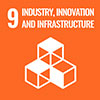Generative AI and sustainability
In recent years, interest in artificial intelligence (AI) has significantly increased. The availability of vast amounts of data, advancements in computing power, and the development of new methods and algorithms have enabled the training of more accurate and reliable models that can be effectively applied in real-world contexts. This growing interest has surged further with the emergence of new generative AI (GenAI) methods, which can synthesize text, images, video, audio, or code based on user input. The popularity of GenAI, along with the introduction of increasingly sophisticated versions that require more resources to create and run, has sparked debate about its long-term scalability. In this article, we will examine GenAI from a sustainability perspective, assessing its current impact and future projections, while identifying the most promising trends and technologies to enhance the long-term sustainability of GenAI.
SDG





 Robert Clarisó Viladrosa
Robert Clarisó ViladrosaComputer engineer (2000) and PhD in Languages and Computer Systems (2005) from the Polytechnic University of Catalonia. Associate professor at the Faculty of Computer Science, Multimedia and Telecommunications at the Universitat Oberta de Catalunya (2005-present) and associate professor at the Polytechnic University of Catalonia (2006) and the Autonomous University of Barcelona (2006-2011). Currently, he is the principal investigator of the Systems, Software and Models (SOM Research Lab) research group at the Internet Interdisciplinary Institute (IN3-UOC) and coordinator of the institutional working group on “AI in education” at the UOC.



